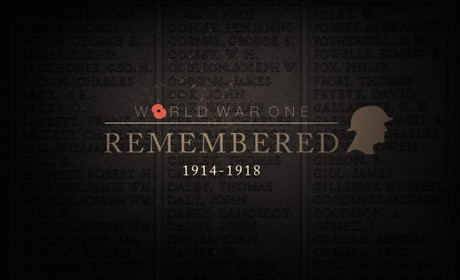
Trinity Mirror's central data journalism unit has reported "very warm feedback" after developing an online search tool to help readers find out more about those who lost their lives in the first world war.
The tool, which was several months in the making, is based on the full data set of the war-dead held by the Commonwealth War Graves Commission - and can be searched by name, address and town.
It appears on several of the group's regional news websites including the Birmingham Mail, Wales Online, the Manchester Evening News and Liverpool Echo, to coincide with the centenary of the outbreak of the war.
Rob Grant, a data journalist at Trinity Mirror's central data unit in Manchester, said the concept came about when a journalist on one of the group's titles in Rochdale asked for help finding data on the town's war-dead.
He told Journalism.co.uk: "That helped spark our own idea. We were thinking as a team several months in advance of the centenary of the war. We knew that the authoritative source for the data is the Commonwealth War Graves Commission (CWGC). We asked them whether we could use their data and they very kindly agreed.We wanted to have access to the raw data behind it - that's how we were able to say that X many people died in Liverpool or Birmingham.Rob Grant
"From then on it was really what we could do with it, how much detail we could go into to serve our titles. We wanted to have access to the raw data behind it – you can search manually on the CWGC website but because we had access to the whole dataset, that's how we were able to say that X many people died in Liverpool or Birmingham."
There were some challenges to be overcome and some of the raw data was "messy", said Grant. Some records had no biographical details, while others were duplicates, with a soldier listed as being the son of someone in Leeds as well as the husband of someone in Manchester.
"We had to make these decisions as we went along and as we discovered the problems," Grant said. "We had to figure out a process to categorise them consistently. The important thing was to make a decision and stick with it.
"Britain in 1914 looked quite different to how it does today – towns and cities were a lot smaller and the country was divided up in different ways. For instance, places that are now in Greater Manchester, back then were in Lancashire or Cheshire. The same is true of many places around the country. In Wales a lot of the places were spelt in the Anglicised way."
He said that the tool has been well-received by Trinity Mirror local journalists and readers, adding: "We've had a lot of interactions on Twitter and in the comments on articles.
"What's been heartwarming for us is when people have been tweeting us saying 'I've found my great uncle', or great grandfather. That's exactly the point of the gadget.
"We tried to make it simple and user-friendly so that people who won't necessarily be interested in family history will be able to find potentially very easily relatives who they lost in the First World War."
Local war news tweeted in real time
Another UK regional publisher experimenting with a new way of telling the war centenary story is the Oxford Mail - which has set up a Twitter feed publishing real-time news alerts exactly 100 years after each war story broke, either from the front line or locally.
Assistant editor Jason Collie told Journalism.co.uk: "Bits of it are timed to the minute – for example, a tweet about the declaration of war, then 10 minutes later we report a large crowd gathered in the city centre singing the national anthem and waving Union flags.
"I was just looking for a different way of telling the story of the war from the usual supplements in print because our archives have such a wealth of local information. The aim is to run it through, past the end of the war."
He added: "We are lucky that one of our former papers is the Oxford Illustrated Journal, which was ahead of its time in that it carried a lot of photos and even did poster fronts.
"When we sat down to plan out our coverage for the centenary it was clear that no matter what we did, we would only scratch the surface of this wealth of stories and information.
"We had discussions about social media coverage for the day war was declared and reporting those events but because of the actual timing of it – 11pm on August 4 – I wasn't sure it would work that well.
"It was really out of that and this treasure trove of stuff in our bound copies of the journal that the idea to cover the first month, and then the whole war in a dedicated Twitter feed and blog on OxfordMail.co.uk, evolved.
"It sounds like a big undertaking but it's almost addictive when you go through the archive doing it."
Free daily newsletter
If you like our news and feature articles, you can sign up to receive our free daily (Mon-Fri) email newsletter (mobile friendly).









